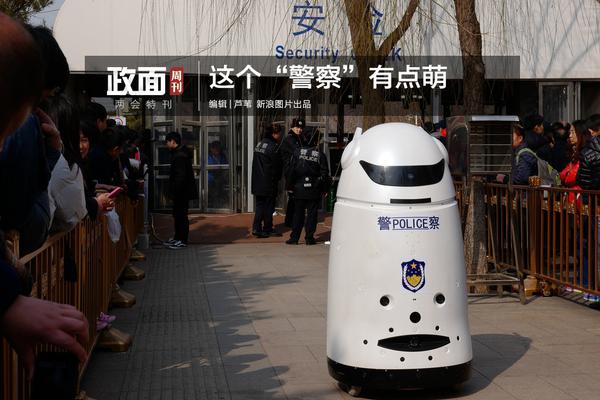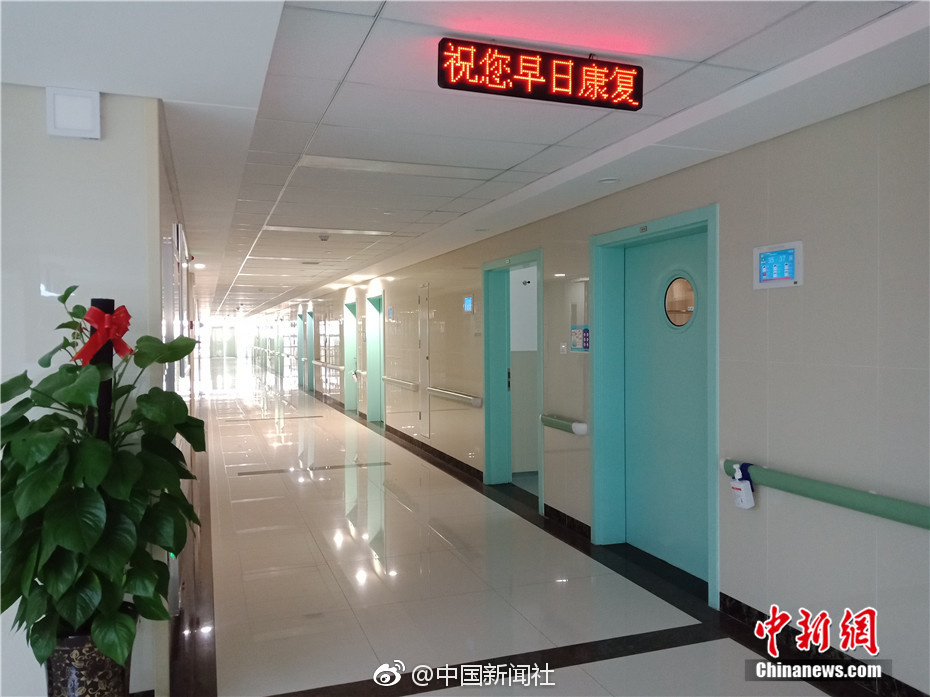
1. The five functions of the operating system are processor management, memory management, device management, file management and job management. Processor management The most basic function of processor management is to process interrupt events. After configuring the operating system, various events can be processed.
2. The main function of the computer operating system is process management, and its work is mainly process scheduling. In the case of a single user and a single taskNext, the processor is only monopolized by one user's task, and the process management work is very simple.
3. Operating System (abbreviation: OS) is a group of interrelated system software programs that supervise and control computer operation, use and run hardware, software resources and provide public services to organize user interaction.
4. Five major management functions of the operating system: (1) Job management: including tasks, interface management, human-computer interaction, graphical interface, voice control and virtual reality, etc. ( 2) File management: also known as information management. ( 3) Storage management: The essence is the management of storage "space", which mainly refers to the management of the main memory.
Any information system has five basic functions, namely: information collection and recording (input); information storage; information processing; information transmission; information output .
According to the functional introduction of the information system, the information system has five basic functions: input, storage, processing, output and control. Different functions have different functions, such as input function: the input function of the information system is determined by the purpose to be achieved by the system, the ability of the system and the permission of the information environment.
Five basic functions of the information system: input, storage, processing, output and control. Input function: The input function of the information system is determined by the purpose to be achieved by the system, the ability of the system and the permission of the information environment.Storage function: Storage function refers to the ability of the system to store various information and data. Mainly including: statistical functions.
The operating system has five functions: processor management: mainly controls and manages the work of the CPU. Storage management: mainly allocate and manage memory. Device management: mainly manage basic input and output devices. File management: responsible for the organization, storage, operation and protection of computer files.
The functions of the computer operating system include: processor management, memory management, device management, file management, job management and other functional modules. Processor management. The most basic function of processor management is to handle interrupt events. The processor can only detect interrupt events and generate interrupts and cannot process them.
The main function of the computer operating system is process management, and its main work is process scheduling. In the case of a single user and a single task, the processor is only monopolized by one user's task, and the work of process management is very simple.
The main functions of the operating system are process and processor management, job management, storage management, device management and file management, as follows: process and processor management. Because the execution of the program must rely on the processor, only one program flow can be processed and executed at any time. Homework management.
I) Processor management The most basic function of processor management is to handle interrupt events. The processor can only detect interrupt events and generate interrupts, and cannot handle these interrupt events. After configuring the operating system, all types of events can be handled.Another function of processor management is processor scheduling.
Five management functions of the operating system: job management: including tasks, interface management, human-computer interaction, graphical interface, voice control and virtual reality, etc. File management: also known as information management. Storage management: The essence is the management of storage "space", which mainly refers to the management of the main memory.

The storage management function of the operating system is to manage memory resources. It mainly realizes memory allocation and recovery, storage protection and memory expansion. The device management of the device management operating system is responsible for allocating and recycling external devices, and controlling external devices to operate according to the requirements of user programs.
The functions of the computer operating system include: processor management, memory management, device management, file management, job management and other functional modules. Processor management. The most basic function of processor management is to handle interrupt events. The processor can only detect interrupt events and generate interrupts and cannot process them.
The five functions of the operating system are processor management, memory management, device management, file management and job management.Processor management The most basic function of processor management is to process interrupt events. After configuring the operating system, various events can be processed.
OKX Wallet download-APP, download it now, new users will receive a novice gift pack.
1. The five functions of the operating system are processor management, memory management, device management, file management and job management. Processor management The most basic function of processor management is to process interrupt events. After configuring the operating system, various events can be processed.
2. The main function of the computer operating system is process management, and its work is mainly process scheduling. In the case of a single user and a single taskNext, the processor is only monopolized by one user's task, and the process management work is very simple.
3. Operating System (abbreviation: OS) is a group of interrelated system software programs that supervise and control computer operation, use and run hardware, software resources and provide public services to organize user interaction.
4. Five major management functions of the operating system: (1) Job management: including tasks, interface management, human-computer interaction, graphical interface, voice control and virtual reality, etc. ( 2) File management: also known as information management. ( 3) Storage management: The essence is the management of storage "space", which mainly refers to the management of the main memory.
Any information system has five basic functions, namely: information collection and recording (input); information storage; information processing; information transmission; information output .
According to the functional introduction of the information system, the information system has five basic functions: input, storage, processing, output and control. Different functions have different functions, such as input function: the input function of the information system is determined by the purpose to be achieved by the system, the ability of the system and the permission of the information environment.
Five basic functions of the information system: input, storage, processing, output and control. Input function: The input function of the information system is determined by the purpose to be achieved by the system, the ability of the system and the permission of the information environment.Storage function: Storage function refers to the ability of the system to store various information and data. Mainly including: statistical functions.
The operating system has five functions: processor management: mainly controls and manages the work of the CPU. Storage management: mainly allocate and manage memory. Device management: mainly manage basic input and output devices. File management: responsible for the organization, storage, operation and protection of computer files.
The functions of the computer operating system include: processor management, memory management, device management, file management, job management and other functional modules. Processor management. The most basic function of processor management is to handle interrupt events. The processor can only detect interrupt events and generate interrupts and cannot process them.
The main function of the computer operating system is process management, and its main work is process scheduling. In the case of a single user and a single task, the processor is only monopolized by one user's task, and the work of process management is very simple.
The main functions of the operating system are process and processor management, job management, storage management, device management and file management, as follows: process and processor management. Because the execution of the program must rely on the processor, only one program flow can be processed and executed at any time. Homework management.
I) Processor management The most basic function of processor management is to handle interrupt events. The processor can only detect interrupt events and generate interrupts, and cannot handle these interrupt events. After configuring the operating system, all types of events can be handled.Another function of processor management is processor scheduling.
Five management functions of the operating system: job management: including tasks, interface management, human-computer interaction, graphical interface, voice control and virtual reality, etc. File management: also known as information management. Storage management: The essence is the management of storage "space", which mainly refers to the management of the main memory.

The storage management function of the operating system is to manage memory resources. It mainly realizes memory allocation and recovery, storage protection and memory expansion. The device management of the device management operating system is responsible for allocating and recycling external devices, and controlling external devices to operate according to the requirements of user programs.
The functions of the computer operating system include: processor management, memory management, device management, file management, job management and other functional modules. Processor management. The most basic function of processor management is to handle interrupt events. The processor can only detect interrupt events and generate interrupts and cannot process them.
The five functions of the operating system are processor management, memory management, device management, file management and job management.Processor management The most basic function of processor management is to process interrupt events. After configuring the operating system, various events can be processed.
OKX Wallet app download for Android
author: 2025-01-23 11:16OKX Wallet app download for Android
author: 2025-01-23 11:20 Binance app
Binance app
754.82MB
Check Binance market
Binance market
654.73MB
Check Binance login
Binance login
313.13MB
Check Binance app download Play Store
Binance app download Play Store
441.68MB
Check Binance download iOS
Binance download iOS
873.73MB
Check okx.com login
okx.com login
651.37MB
Check Binance app
Binance app
945.86MB
Check Binance download iOS
Binance download iOS
724.91MB
Check OKX Wallet
OKX Wallet
729.89MB
Check Binance download iOS
Binance download iOS
423.43MB
Check OKX Wallet apk download
OKX Wallet apk download
242.28MB
Check Binance app
Binance app
292.91MB
Check Binance app download Play Store
Binance app download Play Store
484.99MB
Check Binance download Android
Binance download Android
879.53MB
Check Okx app download
Okx app download
224.44MB
Check OKX review
OKX review
443.79MB
Check OKX Wallet app download for Android
OKX Wallet app download for Android
134.62MB
Check OKX Wallet to exchange
OKX Wallet to exchange
764.29MB
Check Binance app download Play Store
Binance app download Play Store
539.18MB
Check OKX Wallet app download for Android
OKX Wallet app download for Android
579.59MB
Check Binance download APK
Binance download APK
866.33MB
Check OKX Wallet to exchange
OKX Wallet to exchange
241.74MB
Check Binance wallet
Binance wallet
819.39MB
Check Binance Download for PC Windows 10
Binance Download for PC Windows 10
334.77MB
Check Binance app
Binance app
644.78MB
Check OKX Wallet extension
OKX Wallet extension
966.17MB
Check OKX Wallet app
OKX Wallet app
356.89MB
Check Binance app download Play Store
Binance app download Play Store
576.59MB
Check Binance download APK
Binance download APK
288.38MB
Check Binance login
Binance login
768.29MB
Check Binance app
Binance app
156.39MB
Check Binance download
Binance download
588.27MB
Check Binance login
Binance login
495.72MB
Check OKX Wallet download
OKX Wallet download
142.84MB
Check Okx app download
Okx app download
343.83MB
Check Binance login
Binance login
821.75MB
Check
Scan to install
OKX Wallet download to discover more
Netizen comments More
370 冰肌玉骨网
2025-01-23 12:55 recommend
1397 振衣濯足网
2025-01-23 12:34 recommend
1088 磨砖成镜网
2025-01-23 12:30 recommend
1590 落落穆穆网
2025-01-23 12:07 recommend
587 悬悬而望网
2025-01-23 10:31 recommend